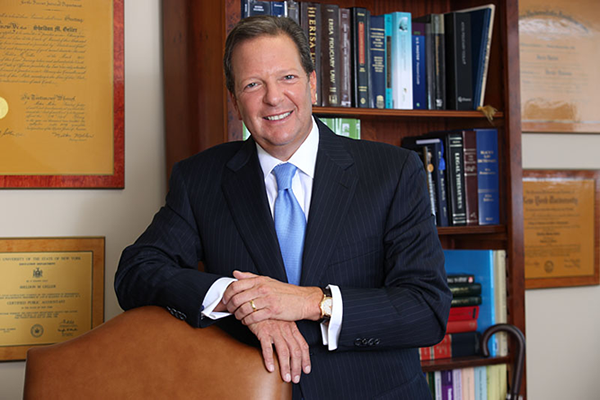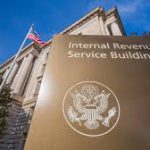You wouldn’t be reading this interview on this website or know who I was if Sheldon Geller didn’t give me a call in September 2002 seeing if I was interested in joining his third party administration firm. I’d still be an anonymous ERISA attorney if he didn’t see something back then.
While I’ve had a difference or two with Sheldon in the past, one of my cherished moments while in my own practice is reconciling with someone that I have had tremendous respect for and that I actually like. So I thought the best way to start this website is to interview someone who has seen it all in the 401(k) plan business in the past 30+ years and get his insight where the industry has been and where it’s going.
Q: I first want to start out that we once had an adversarial relationship that became greater than it really should have and I’m thankful we mended fences a few years back.
A: I am grateful that you reached out to me in the spirit of reconciliation and that we have created a successful working relationship to our mutual benefit.
Q: You’re an attorney and a CPA, which designation came first?
A: The attorney designation came first in 1985, and the CPA designation came second in 1986. I could not receive the CPA designation until after having completed two years of public accountancy practice, which I satisfied post law school graduation.
I did not intend on obtaining the CPA designation, however, my grandfather in law insisted that I “complete” my public accountancy studies with the CPA designation.
Q: You worked for a couple of years as an associate attorney. Why did you decide to start you own third party administration firm?
A: I worked as an ERISA associate for two large Wall Street law firms, and thereafter decided to start my own third party administration firm believing there was, and continues to be, a need for non-conflicted professional advice for a fixed fee in the small and mid-sized plan markets.
Q: How were you able to build a successful TPA firm from a one-person operation?
A: I was able to build a successful TPA firm by differentiating our technical expertise, working very long hours and single sourcing legal, investment advisory and recordkeeping services at reasonable fees.
Q: You started in the 1980s, what do you see the biggest differences in the TPA business today from when you first started?
A: The 401(k) plan marketplace was served mostly by commissioned based stock brokers and insurance agents, utilizing third party administrators. Whereas, the large bundled service providers did not service the small and mid-sized 401(k) plan market in the 1980s and 1990s.
Therefore, TPAs did not directly compete with the bundled service providers as they do today in every market. As a “producing TPA”, we efficiently managed a plan at a lower fee. Moreover, all plans needed to be reviewed and restated to comply with the 1984 tax act creating opportunities with plan sponsors.
Q: You sold your TPA business in 2006 and you left the firm a few years after, why did you decide to start your own registered advisory business? Why didn’t you start another TPA firm?
A: I sold my TPA firm because I believed the model was no longer competitive, as compared to the bundled service provider model who had come “downstream” to service small and mid-sized 401(k) plans. I also believed that fee compression and technology innovation would adversely affect the TPA model.
I started my own registered investment advisory business, with a named fiduciary service deliverable, because plan sponsors are increasingly outsourcing fiduciary responsibility. We can easily distinguish our named fiduciary advisor service deliverable because accepting discretion means accepting fiduciary responsibility for plan investment and plan administration.
Whereas, TPA services have become commoditized, are offered at lower cost by bundled service providers, are loss leaders for asset gatherers and do not address current plan sponsor fiduciary concerns.
Q: Do you see your experience running a TPA firm for 20+ years as a great selling point for your RIA service?
A: Yes, my extensive experience in managing a TPA firm, not to mention a law firm and registered investment advisory firm, as well as my industry leadership positions and published articles, enable our current firm to act as named fiduciary for plan investment and plan administration, negotiate lower plan cost, provide plan design advice, manage fund and share class selection, and address the totality of actual plan operation.
Q: How do you think you differ in practice from other RIA firms?
A: Most RIA firms act as a 3(21) investment advisor, charge an asset based fee and do not assume responsibility or otherwise involve themselves with plan administration oversight.
Stone Hill acts as a registered investment advisor as well as an investment manager and a plan administrator under ERISA sections 3(21), 3(38) and 3(16). Moreover, even if clients retain Stone Hill as a 3(21) advisor, rather than as a named fiduciary, we provide administration oversight and support and make certain fees are reasonable and services are valuable.
In addition, Stone Hill charges a fixed fee, which does not increase automatically with the increase in plan assets.
Q: Do you see the new fiduciary rule as a plus or minus for your practice?
A: We see the new fiduciary rule a plus for our practice as we subscribe to the highest fiduciary standard of care. We maintain no conflicts and act in our client’s best interest, without qualification, the intent and essence of the finalized regulation.
Moreover, many brokers and broker dealers may either no longer service 401(k) plans or create cumbersome service deliverables to do so.
Q: With an increase in litigation against plan sponsors, how does your practice handle the exposure for you and your clients?
A: Stone Hill believes that a robust plan governance process as contemplated by ERISA is the best way in which to manage breach of fiduciary liability exposure.
A robust plan governance process includes plan governance documentation and recurring committee meetings conducted pursuant to an agenda, supported by fund and expense monitoring reports, as well as accompanied by follow up meeting minutes memorializing action items and decisions voted.
Plan governance documents include a board adopted organizational document, a committee adopted oversight charter, an advisor prepared investment policy statement and committee member appointments. Consistently applied committee protocol is a defense to any breach of fiduciary claim or action.
Q: Is there a future for revenue sharing in the 401(k) TPA world?
A: Notwithstanding DOL’s current tolerance and industry practice applying revenue sharing to offset fees, it is likely that regulatory or judicial action may cause plans to apply fee equalization and ban revenue sharing offsets entirely. Nevertheless, such an agenda will likely take years to come around. In any event, plan sponsors are encouraged to adopt best practices at this time.
Q: What’s the one piece of advice today you wish you could have given yourself when you first started out in the 1980’s?
A: Work less and achieve a better balance between work, pleasure and family.
And leave the TPA business and become an investment advisor, if not a named fiduciary, much sooner!







